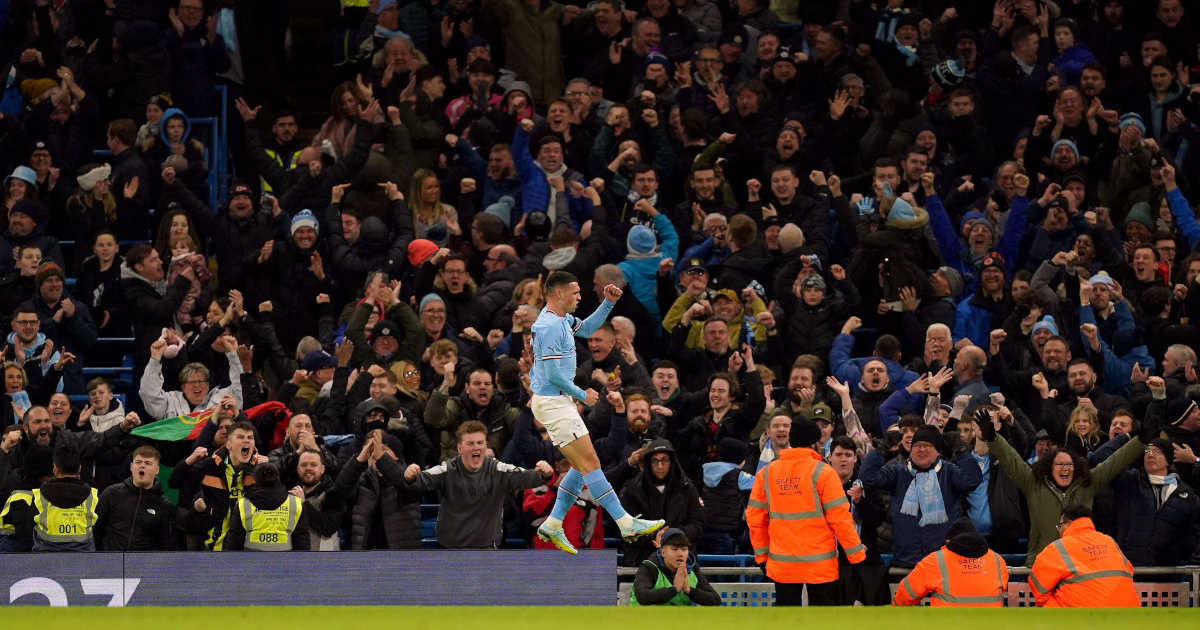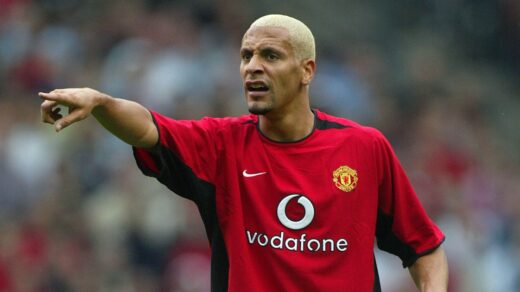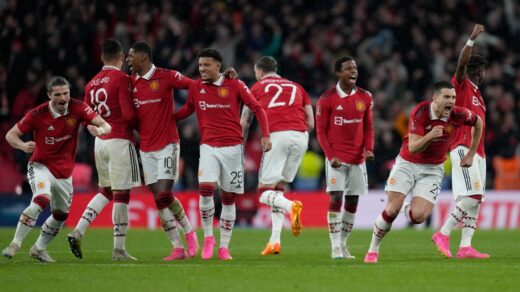Chelsea played out their FA Cup match against Manchester City as if in a daze, and this can’t solely be explained by their lengthy injury list.
And all this without Erling Haaland. They didn’t need him. Manchester City purred to a comfortable win against Chelsea, a performance which suggested that their brief stutters before and after the mid-winter break are already coming to an end.
They cruised to a three-goal half-time lead, pulling out of sight before Chelsea even seemed to have woken up.
And for all the injuries, this was a Chelsea performance that raised questions about how the first-team squad is functioning behind the scenes. Because, as Alan Shearer mentioned shortly after the players had departed the pitch at half-time, no amount of injuries could account for a lethargic and sloppy performance against a purring Manchester City team who were only too happy to take full advantage.
Haaland, who’d largely been anonymous at Stamford Bridge in Manchester City’s slightly cumbersome 1-0 win at Stamford Bridge, was missing altogether for this match, which was somewhat surprising considering that we’d been led to believe that he’d spent the entirety of the World Cup at home, getting his software updated in front of the television.
It’s already known that when Haaland isn’t scoring goals – which is rare – he can drift out of a game completely, but it still felt as though perhaps he could have done with another run-out rather than sitting it out on the bench. It turned out that Manchester City were fine without him on this occasion, which doesn’t really say much for the state of their opponents.
It seems strange to say it, considering that Chelsea are now automatically linked with every footballer valued at more than £30m, but that’s the sort of luxury that Graham Potter could do with at the moment. The games keep coming thick and fast and the injuries continue to mount up.
At kick-off, Chelsea’s injury list read: N’Golo Kante (again), Reece James (again), Wesley Fofana (again), Ben Chilwell, Armando Broja, Ruben Loftus-Cheek, Raheem Sterling, Christian Pulisic and Edouard Mendy. Mount was in the starting eleven, but it had been a little touch and go beforehand whether he would start a couple of days earlier; it’s difficult to imagine he would have started if there were more options.
This difference in resources obviously isn’t due to money. Chelsea seem to have access to extremely deep pockets indeed. Presuming that they aren’t coaching their players to this (lack of) condition, this is just the hard luck of sport: a few knocks, a few kicks, a couple of accidental falls. That’s all it takes before you’re having to look at Denis Zakaria in a slightly different light to before.
Are injuries and the apparent faith of the owners enough to keep Potter in his position? It’s true to say that Chelsea became famous for having an itchy trigger-finger under Roman Abramovich, but Abramovich is long gone now and Thomas Tuchel was inherited, even if his departure just over a month into the season did seem to indicate that this particular tic had been assumed by the new owners from the old.
Potter has already said that he is completely confident that he has their full backing. We all know about the dreaded ‘vote of confidence’ from a board of directors and this wasn’t that, but it should be obvious that managers only have to talk about confidence in the first place if someone doesn’t have it in them. The problem is that this conjecture becomes circular – it has to. The owners could issue a statement, but there’s your ‘vote of confidence’. Stay silent and talk will become more fevered. The only way to break the circle is to either sack them, or for form to improve to such a point that it all dies down again.
And ultimately, there comes a point at which you have to ask how much of this is him needing time, how much might be him not being up to it, and whether enough patience might even be possible at one of the famously most impatient clubs in an extremely impatient game. It’s starting to feel as though the level of patience Potter may need might not be the level of patience that Chelsea’s owners can maintain for much longer.
This doesn’t look like much of an improvement on Chelsea under Tuchel, and after four months you’d be expecting to see, well, something.
But this certainly wasn’t it. It’s reasonable to say that there was little anyone could have done about Riyad Mahrez’s 24th-minute free-kick – other than not concede free-kicks in positions like that in the first place – but Kai Havertz punching the ball away from the head of Aymeric Laporte on the half hour was not ideal. It earned Manchester City a penalty which Julian Alvarez, playing his first match since scoring in a World Cup final, duly converted.
Eight minutes later, Phil Foden scored a third as Chelsea melted around them. At the sound of the half-time whistle, there was already booing coming from the travelling supporters.
Chelsea improved in the second half. Well, they didn’t deteriorate further. Well, Manchester City took their foot off the gas. Or perhaps a mixture of all of the aforementioned happened. Potter introduced David Datro Fofana and Zakaria at half-time. Cesar Azpilicueta and Omari Hutchinson followed them on just after the hour.
City made a couple of changes too, but by the midway point it did feel a little as though everyone could have done with shaking hands and agreeing that this particular goose was well and truly cooked before heading off for an early night.
Chelsea kept going, it rather felt more in hope than expectation, and by the closing stages the singing was becoming sarcastic, the jeering almost ironic. With seven minutes to play, Kalidou Koulibaly kicked Foden in the hip for a second City penalty. Mahrez converted it.
Chelsea were last eliminated from the FA Cup third round in 1998, beaten 5-3 at home by Old Trafford as they commenced a short-lived defence of the trophy they’d won a year earlier. That FA Cup win had been the first they’d won since 1970, and 1970 had been their first ever. They’ve won it eight times in the quarter of a century since, and that level of expectation is what ultimately controls the club now.
This, it increasingly feels, is going to run headlong into the new direction that Chelsea have purported that they wish to follow. In the tug-of-war between short-term hits and long-term aspirations, it’s impossible to say how many 4-0 defeats the club’s new owners will accept, but it’s doubtful that it will be many, not even in the FA Cup, and not even to Manchester City, who looked light years ahead of them. Potter may well need time, but he isn’t going to get it unless performances improve drastically upon this one.




